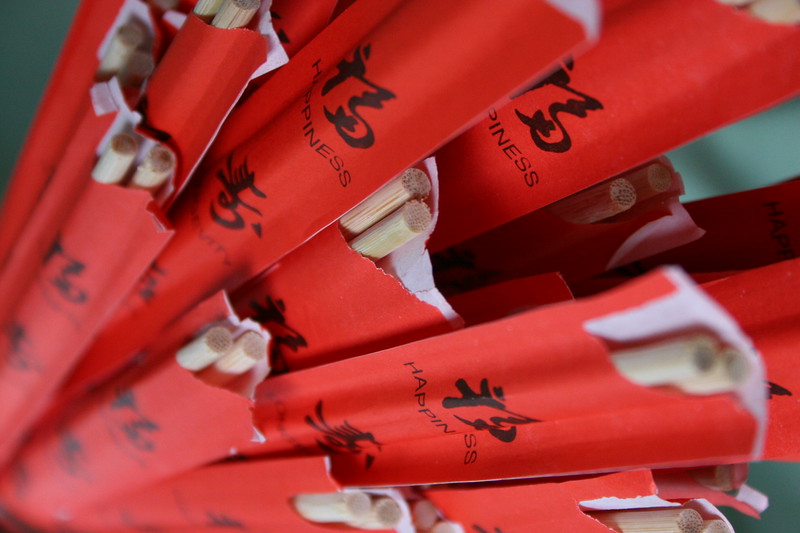Painfully aware of the English that spills from my lips, I watch in awe at the number of my relatives in the same, large dining room. My great-grandmother turned 100 years old recently, and we are all here to celebrate with some of her favorite Chinese dishes. When faced with dumplings, I take out my phone and Google “fork in Cantonese,” but I pause when I remember that my family speaks both Cantonese and Mandarin. I look up and try to listen to what my relatives around me are saying. I have no idea which one I should use since they switch between the two effortlessly. By the time I decide which language to attempt, the server has disappeared.
I timidly take the chopsticks next to my dish and place them in my hand. They practically fall out of my fingers, and all I can do is give a small smile to my aunt next to me as I hide my grimace. I would try to save face by saying I’m naturally clumsy — which is actually true — but I would need to know how to pronounce the words. While I pick up my chopsticks from the floor, she speaks to me in Chinese. I think she’s talking in Cantonese, but I’m unsure. I start pinching the sides of my chopsticks so tightly that my hand begins to shake. Fortunately, a server passes by and, having noticed my mistake earlier, motions with her hands to give her my dropped chopsticks so she can replace them. “Fork please,” I say instead.
As soon as I ask for a fork, my grimace comes back in full force. The hour I spent trying to teach myself how to say the words in Cantonese through Google Translate and a YouTube video has gone to waste. Forget about the hours I spent trying to use chopsticks, only to miserably fail. Luckily, the server is kind enough to search for a fork without asking me why I’m the only one in a room of at least forty people who can’t speak Cantonese or Mandarin and can’t use chopsticks. A flurry of insults spin in my head, and I blink away tears. I watch the glass plate spin in the middle of the table with the variety of dishes I should know by heart.
I have to blink even more tears away once I realize I know none of their names or how they taste. The uncle beside me says, “唔該,” to the server who brought him more napkins.
I figure it might be rude to refuse to eat anything, so I grab more dumplings. The waiter comes back with the fork, and I make sure to thank her in Chinese. “唔該,” I say, my voice slightly shaking. I don’t even know if the phrase is in Cantonese or Mandarin. None of that matters when I carefully watch for her response. I am half-worried that she may laugh at my poor pronunciation and half-excited by the fact that I actually said something that wasn’t in English. I feel intense pride when she smiles at me.
Perhaps, I’m not a lost cause. I murmur the phrase a few times when no one pays attention to me. Each time a server fills my glass with more water or hands someone near me an item, I say, “唔該,” with more confidence each time.
Visual Credit: sling@flickr

Comments are closed.